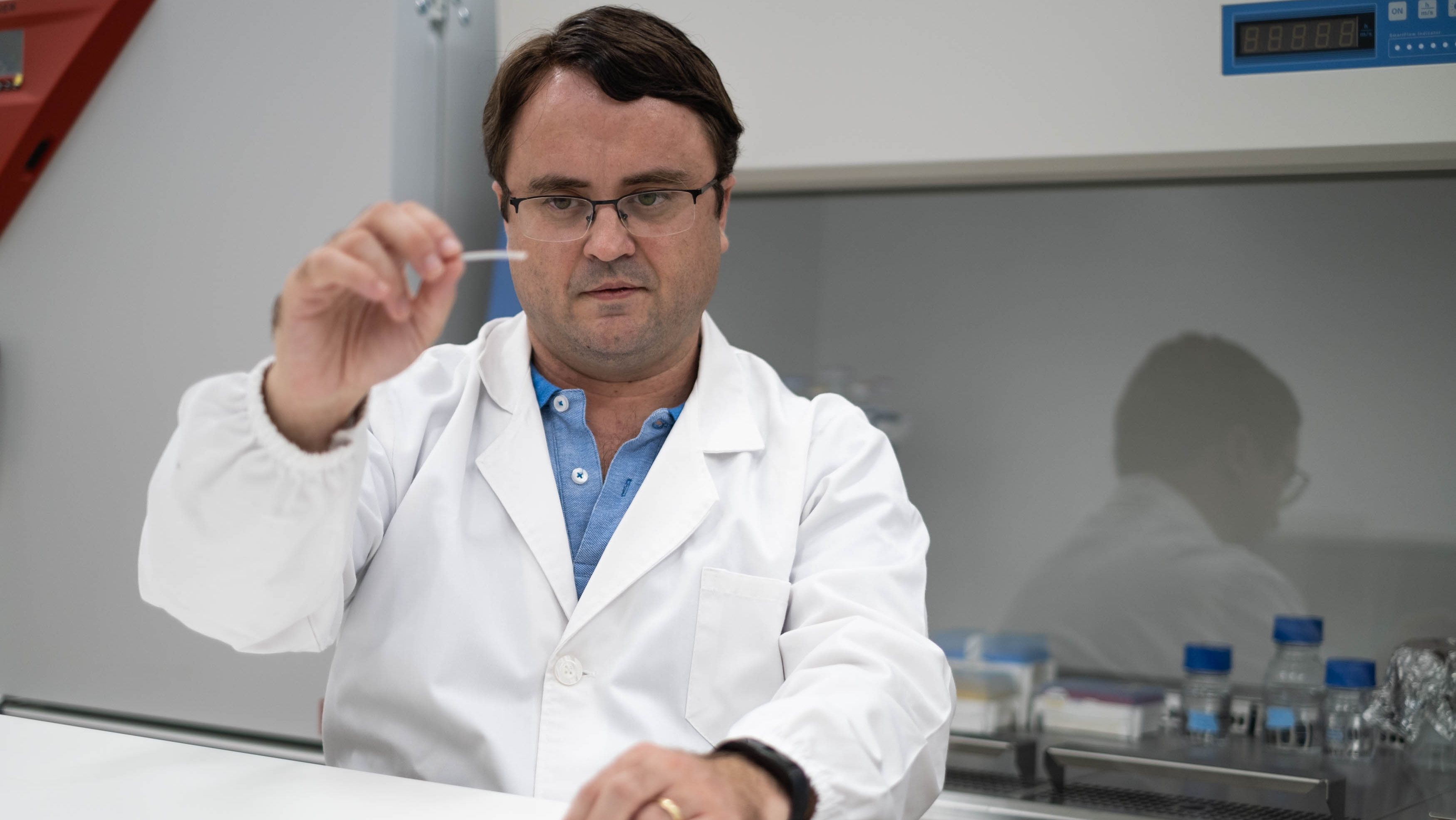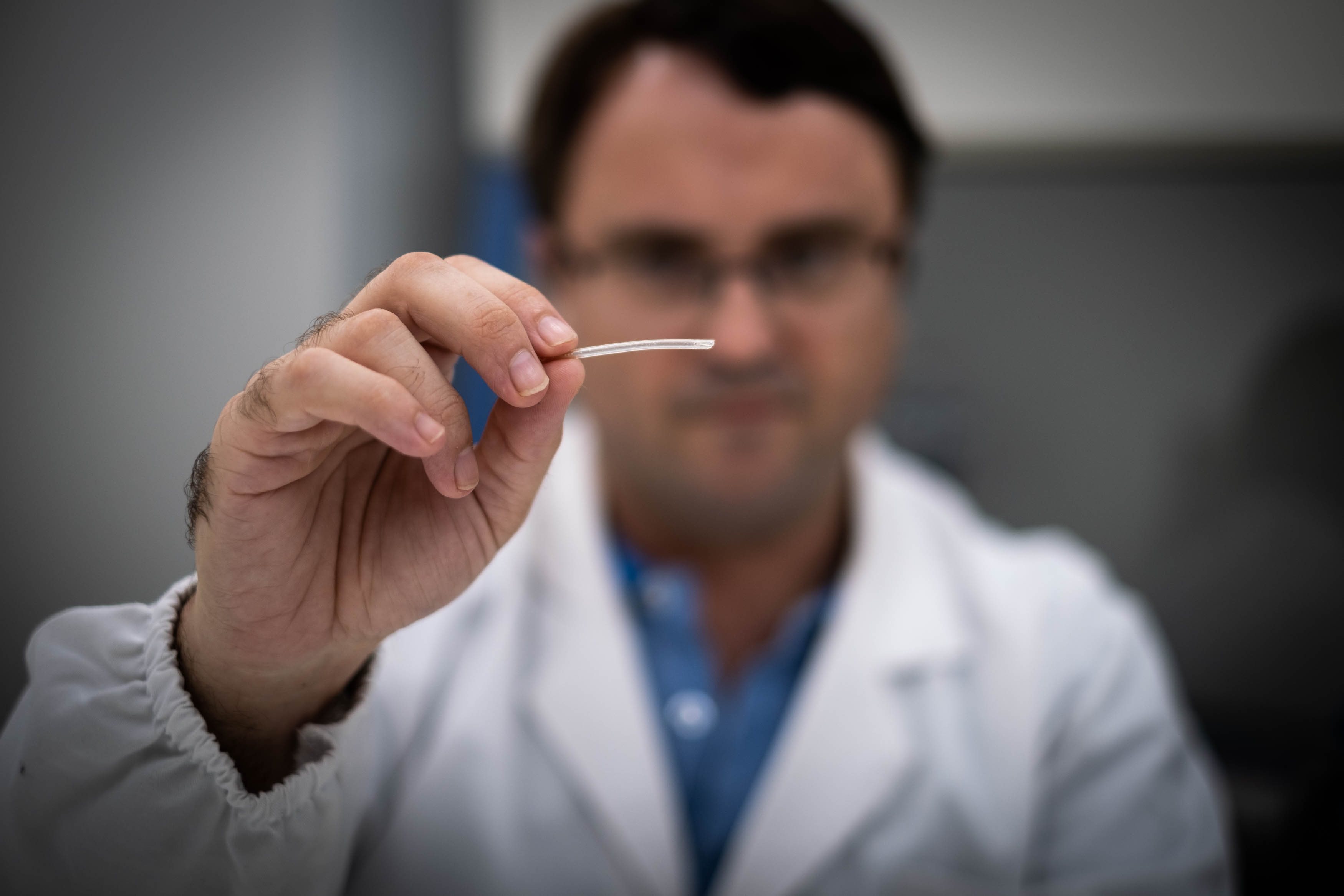They are everywhere. There are so many that it is not possible to count them exactly, but it is estimated that all the nerves in our body, together, cover a distance of about sixty kilometers. Those of the peripheral nervous system – that is, all those that are not part of the brain or spinal cord – connect the rest of the body with these organs and are responsible for transmitting the necessary information in both directions. In simple terms, when we touch a very hot plate, it transmits the feeling of extreme heat to the brain and lowers the motor instruction to withdraw the hand quickly.
Every year, in Europe, some three hundred thousand people suffer serious injuries to peripheral nerves, whether due to traffic accidents, work accidents, tumor injuries, viral injuries or failed surgeries. In the most serious cases, the nerves are not only injured, they are severed, they are divided into two, which implies a great disability: not feeling stimuli, not being able to move a part of the body. Some surgeries resolve this, but with limitations. And it is these limitations that chemical engineer Jorge Coelho, from the Department of Chemical Engineering at the University of Coimbra, wants to resolve.
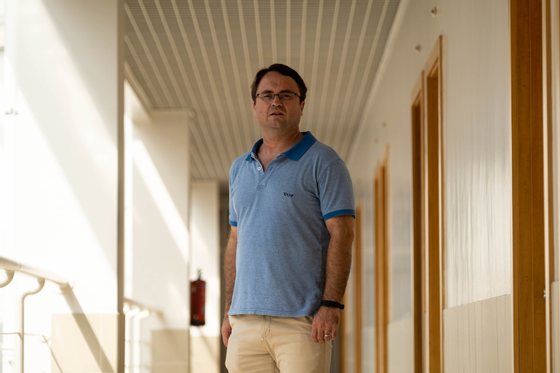
Jorge Coelho wants to help solve the limitations of peripheral nerve regeneration surgeries
When the two “loose ends” of the severed nerve are less than five millimeters apart, the surgeon usually sutures them directly back together. But when they are separated by more than five millimeters, this is no longer possible.
Usually, a nerve is removed from a healthy area and then implanted in the problem area. But this method has some drawbacks: the first is having to sacrifice a good nerve; the second is that the patient needs to undergo two surgeries”, explains the researcher.
Fortunately for us, peripheral nerves have the ability to regenerate: they grow. This means that another option has been explored, in cases of cuts more than five millimeters apart: the surgical implantation of guide tubes that direct the growth of the nerves, until the two separated segments are reattached, at the same time. , that the tube degrades in the body. “The surgeon sews the tube on both sides and the nerve grows. These tubes must have a series of characteristics: they must be biocompatible, they must be permeable to oxygen and nutrients, they must be able to be sutured without breaking, they must be transparent, the degradation products must be non-toxic and, ideally, they must have dimensions and degradation rates adjustable to the needs of each patient.
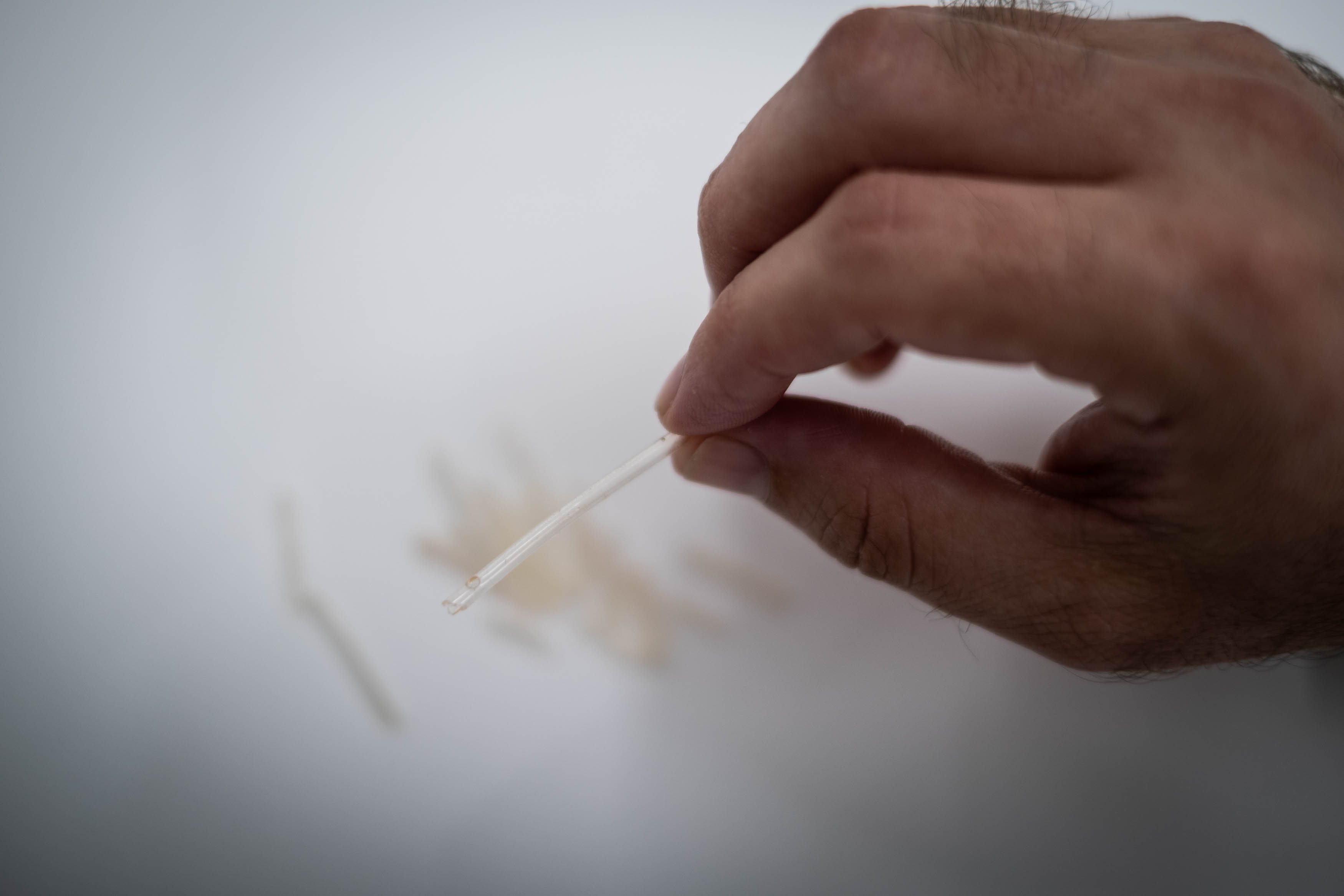
Objective: to develop a three-dimensional printing technology for guide tubes based on modified dextran and PCL to manufacture nerves adapted to each patient.
These guide tubes are already used in surgery and there are several available on the market, but the options are limited and they have several problems. One of them is “either they break down in the body too quickly or too slowly”, which conditions the nerve regeneration process. Jorge Coelho and his research team set out to develop tubes that could be fully customized. “So that the surgeon, depending on the needs of each patient, can choose the dimensions, the shape, the diameter and even the rate of degradation in the body.”
“We take two polymers, polycaprolactone (PCL) and dextran, and chemically modify them,” he explains. Depending on the quantity of each one of the materials used, the degradation time of the tube varies, allowing the surgeon to choose the most suitable for the patient’s case.
The proof of concept of the new guide tubes has already been carried out successfully in animals. It happens that when they developed the project, in order not to waste time or resources with the production of something that they still didn’t know if it would work, they made an archaic production. “We take a stainless steel tube and a wider quartz tube and inject our solution between the two to produce the guide tube,” explains the researcher.
Now that it has been shown to work, you need to make sure it can be produced on a large scale before moving on to clinical trials. Funding of seventy thousand euros from ”la Caixa” Welfare Projects will allow precisely this: to develop a three-dimensional printing technology for guide tubes based on dextran and modified PCL, to manufacture nerves adapted to each patient. The idea is that the surgeon can choose the tube with the desired characteristics and give a single production order to the 3D printer.
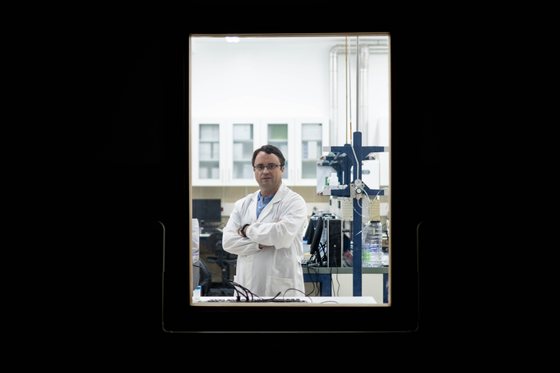
The idea of Jorge Coelho’s group is to produce personalized guide tubes, “so that the surgeon, depending on the needs of each patient, can choose the dimensions, shape, diameter and even the rate of degradation in the body.”
The 3D production solution, which will be developed in collaboration with the Pedro Nunes Institute, will make it possible to continue improving this patented technology. It will be possible to add some of the patient’s own cells to the artificial graft and also to explore the possibility of printing artificial grafts with other formats, and not only with cylindrical tubes.
The 43-year-old scientist, born in Figueira da Foz, completed his bachelor’s and doctorate in Chemical Engineering at the University of Coimbra, and was one of the youngest tenured professors at the institution, at 39 years old. In addition to basic (or fundamental) science projects, the scientist’s research group has a large translational research component and holds several patents, in the biomedical and agricultural areas. For him it is not only important to think, but also to “do things”. And he hopes that these guide tubes will soon be a new resource available to surgeons, helping them take another step toward truly personalized medicine.
This article is part of a series on cutting-edge scientific research and is a collaboration between Observer, Fundação “la Caixa” and BPI. The personalized medicine project to repair peripheral nerve injuries, led by Jorge Coelho, a researcher at the University of Coimbra, was one of the 15 selected (four in Portugal) –among 110 international applications– to receive funding (seventy thousand euros ) by the Barcelona-based foundation, within the framework of the 2022 edition of CaixaResearchValidate, a program that promotes the transformation of scientific knowledge generated in research centers, universities and hospitals into companies and products that generate value for society. Applications for the 2023 edition should open in November.
Source: Observadora
